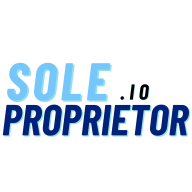When Has Saying 'No' Benefited Your Business?
We've gathered insights from six freelancers, including a Copywriter and an SEO Specialist, on the power of saying 'no' to certain projects. From rejecting misaligned projects to declining for specialized success, these professionals share how turning down work has strategically benefited their businesses in the long run.
- Rejecting Misaligned Projects
- Choosing High-Value Opportunities
- Prioritizing Strategic Growth
- Avoiding Unrealistic Client Expectations
- Focusing on Core Expertise
- Declining for Specialized Success
Rejecting Misaligned Projects
One of the best pieces of advice I received as a freelancer was, "If you're unsure about taking on a project, remove the money aspect." So, in a perfect world, if money weren't an option, would you still take this project on? It seems counterintuitive, but I ended a relationship with a large client, absolutely terrified because they were my main source of income, and it turned out to be the best thing I could have done.
The things that led me to end the relationship were taking a significant toll on my time and mental energy. When our relationship ended, I had so much more time and energy to focus on growing my other clients and looking for new ones that were better aligned. Within just a few months of that relationship ending, I had more than replaced that source of income.

Choosing High-Value Opportunities
Turned down a low-paying project that demanded excessive time. This decision allowed for focusing on higher-value clients and projects, leading to more significant opportunities. Soon after, I secured a well-paying contract that aligned perfectly with my skills and interests. By saying 'no' initially, I created space for better work, leading to increased income and professional growth.

Prioritizing Strategic Growth
Early in my entrepreneurial journey, I was eager to take on every project that came my way. I believed that saying "yes" to everything would lead to growth and success. However, I quickly learned that this approach was unsustainable and detrimental to my business in the long run.
One particular project stands out in my memory. A potential client approached me with a large-scale project that seemed like a dream opportunity. It promised significant revenue and exposure, but it also came with tight deadlines, unrealistic expectations, and a scope that didn't align with my core expertise. After careful consideration, I made the difficult decision to decline the project. It was a nerve-wracking moment, but I knew in my gut that it wasn't the right fit for my business.
In hindsight, it was one of the best decisions I ever made. By saying "no," I freed up valuable time and resources to focus on projects that were better aligned with my strengths and long-term goals. This led to more fulfilling work, happier clients, and ultimately, greater success for my business.
I learned a valuable lesson that day: sometimes, saying "no" is the most strategic and impactful decision you can make for your business. It allows you to prioritize quality over quantity, focus on your core competencies, and build a sustainable business that aligns with your values and aspirations.

Avoiding Unrealistic Client Expectations
When holding an introductory call with a prospective client, it became clear that the prospect's expectations for the project were unrealistic, and their beliefs about the business relationship were not a good fit with my business. That's an engagement that's best to decline and then help that prospect find another provider that is a better fit. You benefit from it in less stress, protecting your business reputation, and potentially not having to write off revenue never collected.

Focusing on Core Expertise
One time, we declined a project that was outside our area of expertise, which ultimately benefited our business in the long run. By saying "no" to this opportunity, we were able to focus on what we do best—providing top-notch marketing consulting and coaching at the CMO level. This decision allowed us to deliver higher quality work for our existing clients, reinforcing our reputation as specialists in our field.
Concentrating on our strengths meant we could consistently exceed client expectations, which led to increased client satisfaction and loyalty. Our clients appreciated our deep understanding of their specific needs and challenges, which in turn resulted in more referrals and opportunities that were well-suited to our expertise. This focus on our core competencies helped us build a strong, niche reputation in the marketing industry.
By strategically choosing projects that aligned with our skills and experience, we positioned ourselves as a go-to resource for high-level marketing consulting and coaching. This approach not only enhanced our brand's credibility but also attracted more clients who valued our specialized knowledge, leading to sustainable business growth and long-term success.

Declining for Specialized Success
I recall a time early in my career when a well-known company approached me for a large-scale SEO project. While the pay was tempting, the timeline was unrealistic, and the scope didn't align with my expertise. It was a difficult decision, but I declined the offer.
This turned out to be a pivotal moment for my business. Shortly after, I landed a smaller project that was a perfect fit for my skills and interests. This project not only led to outstanding results but also opened doors to a network of clients who valued my specialized approach.
Saying 'no' was a risk, but it allowed me to focus on quality over quantity, building a reputation for delivering exceptional results within my niche. This ultimately led to more fulfilling and profitable opportunities in the long run.


